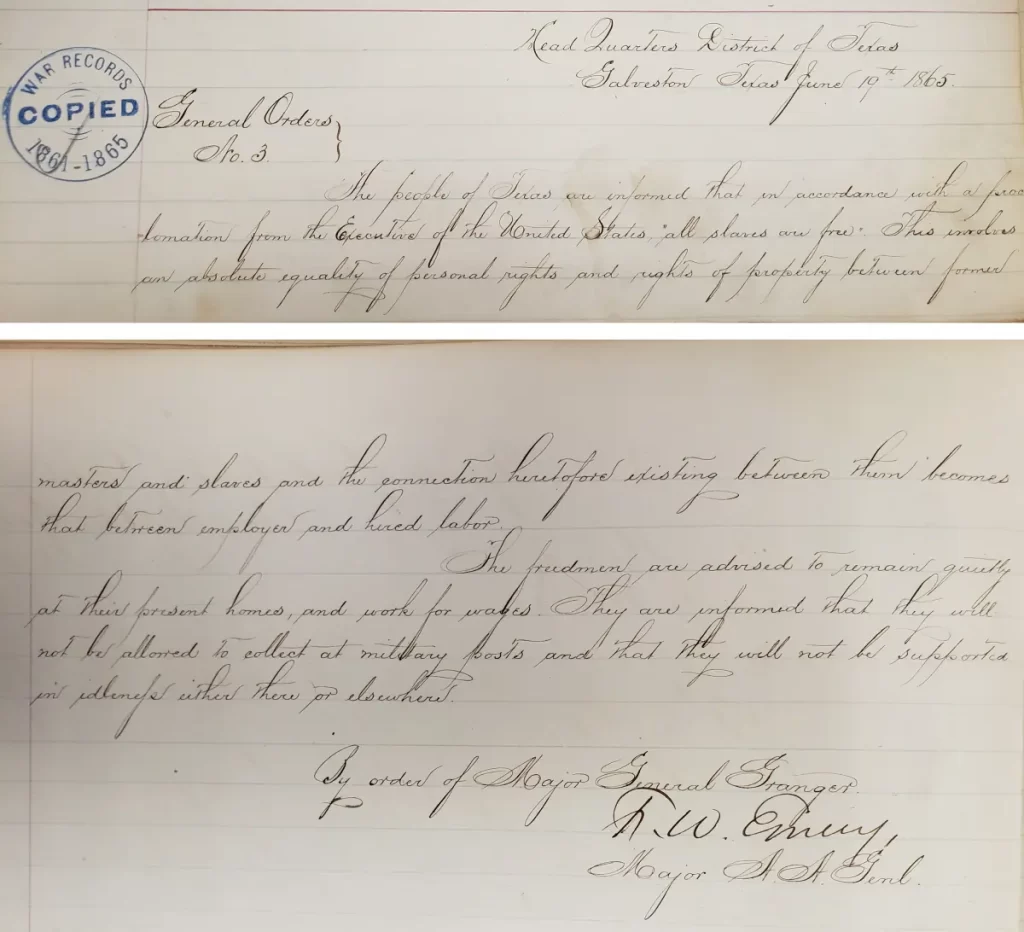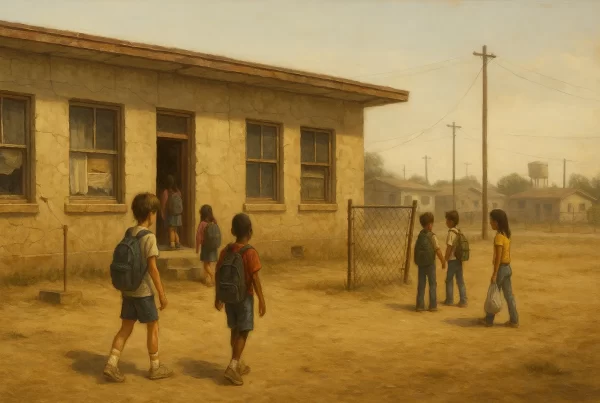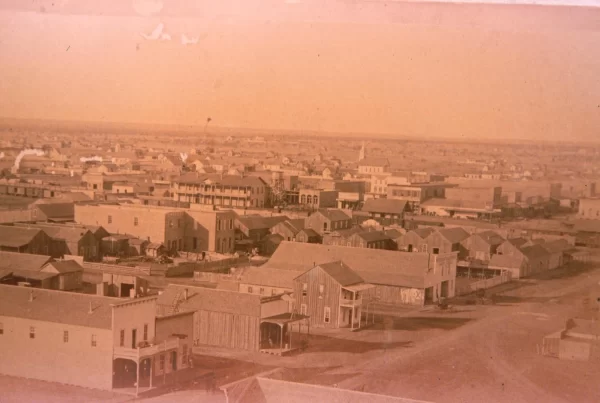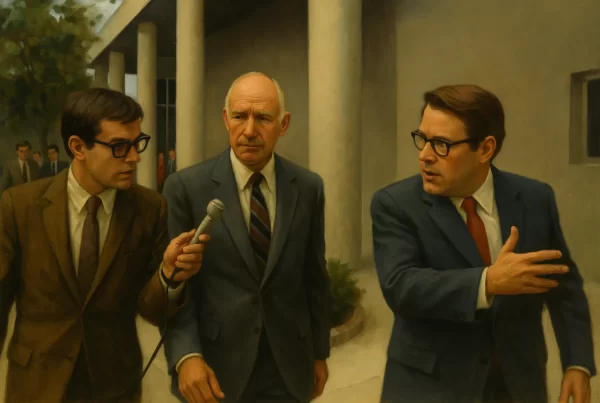”The people of Texas are informed that... all slaves are free.
U.S. Army Proclamation in Texas, June 19, 1865
Origins of a Holiday
Juneteenth is an official holiday celebrated annually on June 19th, which commemorates the liberation of slaves in the United States in 1865 at the end of the U.S. Civil War.
The holiday began as an unofficial celebration among freed slaves in Texas, spread to other states, and won recognization as an official state holiday in Texas in 1980, before becoming a federal holiday in 2021.
The U.S. President signed the Juneteenth National Independence Day Act on June 17, 2021. The U.S. Senate had approved the act by unanimous consent, and the U.S. House approved it by a vote of 415 to 14, signaling strong bipartisan support for commemoration of the holiday.
The holiday is also known as Jubilee Day, Freedom Day, Liberation Day, or Emancipation Day.
Relationship to Emancipation Proclamation
Lincoln’s had declared, “All persons held as slaves within any State, or designated part of a State, the people whereof shall then be in rebellion against the United States shall be then, thenceforward, and forever free.”
The advance of Union armies into the Confederacy, including Texas, resulted in freedom for the slaves in the occupied areas. This preceded the 13th Amendment to the U.S Constitution passed by Congress in 1865, after the end of the Civil War, ending legal slavery officially.
Juneteenth takes its name from the date of an 1865 proclamation by a U.S. army commandeering Texas, which he issued on June 19th, declaring slaves in Texas to be free.
On June 19, 1865, U.S. Major-General Gordon Granger declared that “in accordance with a proclamation from the Executive of the United States, all slaves are free.” General Granger’s order implemented in Texas the national Emancipation Proclamation issued by President Abraham Lincoln’s two and a half years earlier.
Traditional Juneteenth Celebrations
African Americans have been celebrating Juneteenth since 1866, though the day only became an official state holiday in Texas in 1980. Legally, the day is called “Emancipation Day in Texas.”
Juneteenth celebrations historically have featured parades and picnics, music, and barbecue, much like the July 4 holiday, as well as singing of the hymn “Lift Every Voice.”
Celebrations of the holiday began to spread to other states as African Americans Texans migrated elsewhere in the years following the proclamation.
History and Text of the Juneteenth Proclamation
Maj-Gen. Granger’s declaration came the same day federal troops arrived in Galveston, following weeks of looting and disorder after the collapse of Confederate authority in Texas.
Confederate troops in the state had disbanded in May after news that Confederate armies in the East had surrendered.
The original Juneteenth proclamation is preserved in the National Archives in Washington, D.C. The heading says “General Order No. 3,” because it was the third general order issued by Granger after he arrived in Texas.

The order is handwritten by the general’s aide, F.W. Emery, and bears his signature. It reads: “The people of Texas are informed that, in accordance with a proclamation from the Executive of the United States, all slaves are free. This involves an absolute equality of personal rights and rights of property between former masters and slaves, and the connection heretofore existing between them becomes that between employer and hired labor.”
“The freedmen are advised to remain quietly at their present homes and work for wages. They are informed that they will not be allowed to collect at military posts and that they will not be supported in idleness either there or elsewhere.”
Criticism of the Juneteenth Proclamation
Even though the Juneteenth proclamation freed slaves in Texas, it left them with the dilemma of how to start new lives with little or no possessions in a war-shattered land. Most slaves had grown up in bondage with no schooling or training for skilled trades.
Some observers have criticized the language used in the order. Michael Davis, a public affairs specialist for the National Archives, wrote, “While the order was critical to expanding freedom to enslaved people, the racist language used in the last sentences foreshadowed that the fight for equal rights would continue.”


